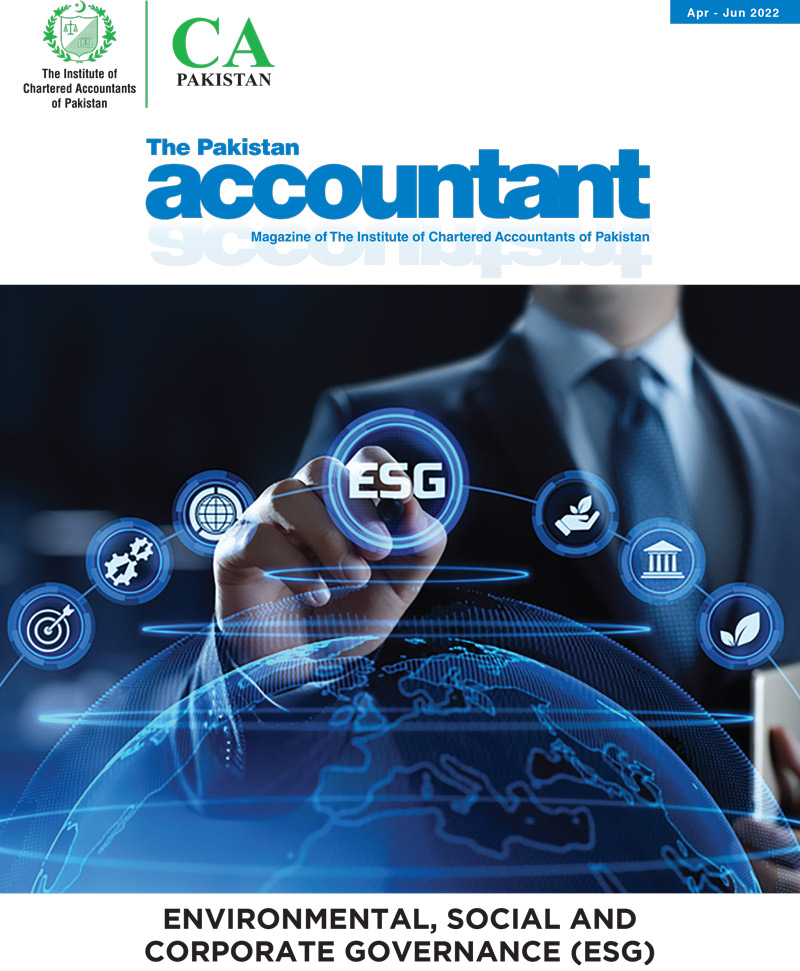What is Green Accounting?
Green Accounting refers to accounting information that is associated with the indirect costs of economic activities and how do these have an impact on the environment, which in turn would influence the decision making process of a company. It focuses on preventing and reducing harmful effects on the environment that are caused due to the operations of an organizations. If this method is applied in an effective manner, it would lead to a reduction in costs as well as an improvement in environmental performance which is achieved by not only using environmental friendly technology but also manufacturing products in a way that do not damage the environment.
Need for Green Accounting
Green Accounting has become a dire need to be implemented in today’s world due to increase in economic and industrial activities by the companies which have caused great damage to the availability of natural resources. This environmental degradation has a negative impact on the community. There is a possibility that the Gross Domestic Product of a country can be affected if there is no proper corporate disclosures in the annual reports of companies regarding how their activities have negative bearing on environment and what measures are they taking to mitigate those marks. For a developing country like Pakistan, both Economic development and application of Green Accounting is the need of the hour and therefore can be achieved by incorporating environmental costs into business operations. Moreover, the government needs to devise a revised model according to which the GDP acknowledges the need of environmental accounting.
Green Accounting has become a dire need to be implemented in today’s world due to increase in economic and industrial activities by the companies which have caused great damage to the availability of natural resources.
Green Accounting Indicators
There are different Green Accounting Indicators which have been prepared by analyzing Global Reporting Initiative Reports as well as studying the factors that contribute to a sustainable environment.
1. Energy Consumption:
There are high shortages of energy throughout the country and therefore high costs associated with these directly impact the company’s daily operations. The forms of energy consumed by a company include heat, fuel, electricity, etc, and these cause negative effects on the climate which can be reduced by adopting renewable energy resources. These in turn would hamper the environmental damage generated by such activities.
2. Water Consumption:
This factor is important and is based not only on the water usage by the company but also the current state of water availability in the country. According to a recent report published by IMF, among countries all over the world, Pakistan is ranked third over facing extreme water shortages. An organization therefore should be concerned about how water is consumed, withdrawn as well as disposed after careful treatment so that it does not harm the environment (human and marine life).
3. Emissions:
The emissions of harmful gases (nitrogen oxides, sulphur oxides and greenhouse gases), negatively affects the air quality, agriculture, human and plant life as well as causes depletion of the ozone layer. All these activities are leading to a drastic climate change. Therefore organizations need to take preventive measures to reduce these emissions and disclosures in this regard also provide an overview that whether a company is complying with national and government regulations such as National Environment Accounting standards or not.
4. Effluents and Waste:
The disposal of waste materials, spills of chemicals, oils and fuel have an adverse impact on the local communities as well as detrimental effect on the environment. In order to resolve this issue, the organizations can contribute by portraying efforts to reduce effluents disposal. Moreover, waste minimization strategies should be put into practice that would encourage re-use and recycling of materials thereby minimizing negative ecological impacts.
How to implement Green Accounting at Company/Office?
- It is extremely important to educate employees through trainings, creative activities as well by providing incentives so that they use environment friendly techniques to work at the office.
- Minimizing the use of paper and shifting to an online system to manage daily tasks such as record keeping, performing calculations and discouraging printing activities would be a great initiative towards green accounting.
- Maximizing the use of natural light and utilization of energy-saving appliances to work during the day would reduce electricity consumption. Moreover, by adopting renewable energy resources as well as opting eco-friendly office products would be a step forward to implementing greener solutions to environmental issues.
- Cloud accounting methods can be adopted so that most of the employees can work remotely which in turn would decrease pollution as well as company’s carbon footprint.
Green Accounting and Profitability of a company
Most of the researchers have discovered through detailed analysis that there is strong relationship between Green Accounting and financial performance of a company and the increase in profitability by a company in turn increases the value of a company. The relationship between environmental accounting disclosures and financial performance can be analyzed by keeping forth two important variables, cost and revenue. When analyzing the effect in terms of income, the consumers have a higher tendency to pay for eco-friendly products which also provide competitive edge to the organization and thereby allowing it to enjoy market differentiation.
While talking in terms of cost, the company can increase its efficiency by effectively applying green accounting to its operations which would not only help in avoiding potential liabilities, enjoy better positioning in the market but also would be able to create entry barriers for potential competitors. The disclosure of environmental costs will reflect that business ethics are carried by the company and are responsible enough to manage the resources effectively.
There are high shortages of energy throughout the country and therefore high costs associated with these directly impact the company’s daily operations. The forms of energy consumed by a company include heat, fuel, electricity,
etc, and these cause negative e.ects on the climate which can be reduced by adopting renewable energy resources.
These in turn would hamper the environmental damage generated by such activities.
The above-mentioned criteria, if implemented successfully by the companies will increase the level of trust of stakeholders which include employees, consumers, investors as well as the public at large in the products and services of the company. This in turn would increase the profitability of the company thus indicating a direct relationship between environmental accounting and corporate profitability. Hence, overall there is a positive relationship observed between these two variables.
Conclusion
It can be stated that Green Accounting is the ability to provide accurate information by companies in their financial statements regarding the approximate social costs caused by their activities that also have an impact on the environment. This information is extremely important to both investors and customers yet there still are companies that do not disclose such information which clearly indicate that less number of companies are taking measures to preserve the environment. The government must encourage companies to the application of Green accounting as it would not only lead to higher self-disclosure thereby increasing the trust in the company by the public at large. Both short and long-term profitability of the company would increase as potential clients would be attracted to buy products of such trusted companies thereby retaining customers in the longer run. Disclosures are important for investors as they would take decisions regarding the investment of capital based on this data. Hence, Green Accounting must be implemented as soon as possible by companies all around the world to ensure environmental safety along with profit maximization side by side.














